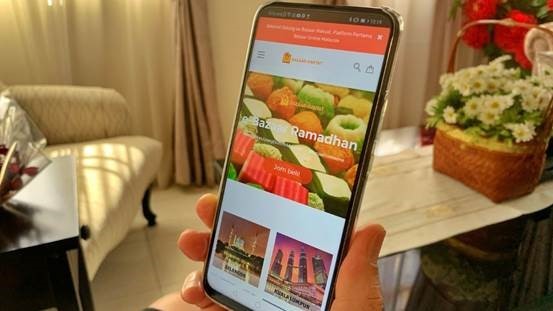
Image credit: Vulcan Post
Back in pre-Covid-19 days, local bazaars were a force to be reckoned with. Consumers could buy niche brands with products made in small batches and often with thoughtful details ignored by mass-produced brands.
Many popular local labels began from little booths in bazaars which were often set up to coincide with celebrations.
But with everything pivoting from physical to virtual, the facade of these bazaars have undergone a major shift with everything going online.
Poptron is a boutique marketplace which hand-curates brands and products that cannot be found elsewhere. The products tend to be high in quality and low in quantity.
Names include Kapas that makes good quality cotton bedsheet and Baba Baa that releases children's books with gorgeous illustrations that easily match international standards.
There is also Sundari Gifts, which produces handwoven tote bags made with pandan leaves and organic fabric lining to make them both beautiful and sustainable.
Poptron founder Brian Johnson Lowe says microbrands that traditionally rely on social media platforms have to familiarise themselves with and operate a myriad of online tools and software.
We help them solve these problems - like attracting a like-minded audience to our e-commerce marketplace. We target a lifestyle-centric urban audience and provide free essential e-commerce tools for brands to manage orders until the fulfillment process.
"We integrate partners that specialise in cross border payments and logistics to ensure a smooth end-to-end business," says Lowe.
ONLINE ENHANCEMENT
Lowe says that in the absence of a physical bazaar, an enhanced platform and clean interface help.
"We present brands, stores and products in a fetching way. Key categories such as Popular and Latest Products, Editor's Picks, On Sale and Featured Stores showcase collections in specific ways.
Easy product search and discovery, along with fetching product images, are just a few of the things that make it easy for customers to navigate the platform and browse.
"We also help our community through in-house photography service to capture the essence of the products and present them on their store."
Poptron's demographic comprises urbanites between 21 and 39 years old, "discerning customers who are confident and trendy, and who love exploring unique, artisanal and conscious products".
"Before the pandemic, it was easy to look for these types of products at pop-up bazaars on weekends. With Poptron, we bring that same magic and excitement 24/7."
THE NEW NORMAL
"Many may still like the idea of physical market-type venues but I don't foresee this as a sole and viable avenue during the pandemic," says Lowe
"With all the restrictions and standard operating procedures (SOP) in place, it will be very difficult to gain that same momentum and outcome for physical bazaars.
"I'm hopeful that the recovery will be better this year compared to last year. But this will take time and the only way to address this now is by moving the businesses online to increase awareness and traction."
Lowe says brands must be easily accessible to anyone - which means ensuring that they are available anytime and anywhere, not just in Malaysia but also regionally.
"With our expansion to Southeast Asian countries in the pipeline - beginning with Singapore - these brands can now grow their business regionally and gain a wider audience.
"I think that's the biggest difference, and also the biggest prospect that an online bazaar holds, compared to a physical one."
Source: https://www.nst.com.my/lifestyle/flair/2021/03/670604/going-online-only-way-bazaars

